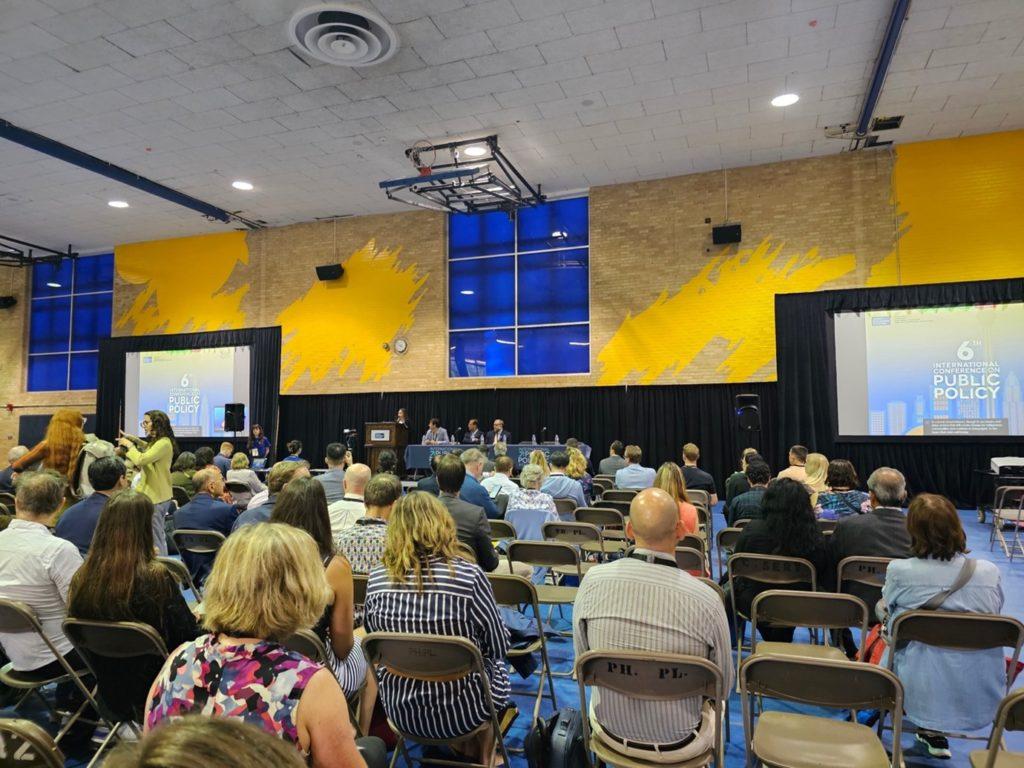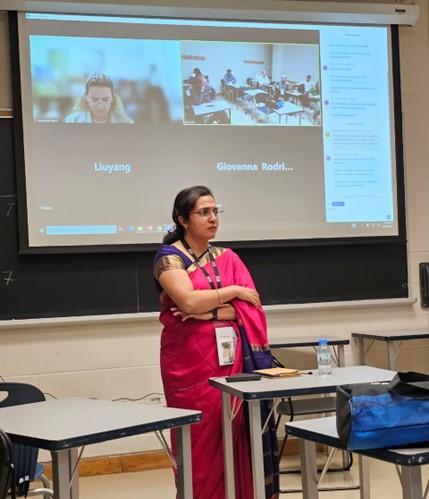
The 6th edition of the International Conference on Public Policy (ICPP6) was held between June 27th and 29th, 2023 in Toronto, Canada. ICPP6 had 1180 registered participants coming from 78 different countries. It is one of the world’s largest international events on public policy: no less than 1522 papers related to various public policies were presented in 156 panels this year. The Faculty of Arts at Toronto Metropolitan University hosted the ICPP6. In many ways, public policy conferences like these are sources of inspiration and learning new ideas, knowledge and innovative policy approaches that are critical to the field of health policy and systems research (HPSR). Given the multidisciplinary nature of the HPSR field, it’s vital to better understand and apply the ontology, epistemology and methodologies used in other disciplines such as political science, sociology, anthropology, history etc. In this regard, an ICPP meeting is a “one stop” source that enables multi/cross/trans/ inter/intra disciplinary learning and networking. In this featured article, almost two months after (as most authors were on summer vacation) attending ICCP6, we still feel compelled to critically reflect upon the learnings from ICPP6, 2023 and their implications to the HPSR field.
Attending ICPP6 felt like breaking out of the cocoon of the usual HPSR related conferences, which are organized every two years. This is not to undermine HPSR conferences. While it is important to have HPSR field specific conferences to build the field, it is equally pertinent to recognise the fresh leash of intellectual energy infused by non-HPSR conferences such as ICPP6 to the HPSR field (and thus HPSR researchers like us). A non-HPSR focussed conference is intellectually exhilarating because you get to learn new concepts and methodologies. For instance, exploring the political dimension of health policy formulation and implementation is recognised as a critical element in the HPSR field. There were a few panels at ICPP6 which discussed the role of emotions in the public policy processes. One of the presentations on the interpretive analysis of emotional climates in policy conflicts was fairly intriguing. The presenter emphasised the need for analysing emotional storylines in policies. Another presenter in the panel empirically studied emotions in migrant policies of the UK, using a concept called “neurotic citizen”- where the State governs its subjects by responding to their fears, anxieties and insecurities rather than based on more rational objectives. So that way, the state symptomatically addresses your anxieties but does not take steps to cure your anxieties. Another separate panel on policy termination in practice discussed various frameworks and the mechanics of dismantling public policies. No doubt there were many more examples of panels where HPSR researchers were introduced to relatively novel ideas, methodologies, etc.
Outstanding plenary sessions
The topics and the speakers chosen for the plenary sessions of ICPP6 were like icing on the cake. The conference featured three plenary sessions that included a keynote speech and two roundtables. We share here some titbits of the plenary sessions.
The first plenary session, a roundtable, addressed “ transformative policy futures in the age of Anthropocene”. Leading scholars who study the interface between economic, environment and social policies argued for transformative policy futures. Frank Biermann, an expert in global sustainability governance, in this panel advocated for multidisciplinary research in public policies to avert the dangers of unqualified quantification, false reductionism and engineer approaches with false (or at least one-sided) technological solutions. He also underlined the need for building a globally inclusive discourse and a normative debate on planetary justice. The keynote speaker, Deborah Stone from the Massachusetts Institute of Technology spoke about the paradox of democracy. While normatively we have accepted democracy as the ideal form of government, democracy remains unseen in most spheres of our policy work. She emphasised the significance of interpretivist scientists to make the invisible norms visible, in order to claim/reclaim democracy and science. For example, she urged to interrogate the colour black sociologically, economically and politically. She critically examined the politics of science and illustrated how science has become unnecessarily quantitative. She urged policy analysts to do science rigorously but disseminate it with good story telling elements in order to create impacts in people’s lives. The third plenary focused on the “inclusive State”- where structural inequities are adequately addressed through State policies. This plenary analysed if the existing theories of public policy and governance sufficiently explain the rise of the inclusive State and the processes to advance its goals.
Exploring Toronto (if you were lucky enough to make it to the conference)
ICPP6 also gave an opportunity to some of us (who were fortunate to attend in person) to explore and experience a bit of Toronto. We also got to meet and interact with some accomplished political science scholars whose theories and frameworks we have used in our HPSR work. The cultural enrichment one gets through experiences in places outside one’s home country is also gratifying.
The cross-disciplinary nature of the HPSR field requires us to attend global conferences such as ICPP (although we are aware they come with an environmental cost). Such meetings and platforms provide new ideas, inspirations and tools for critical analysis and deeper understanding of the problems confronted by health systems. Sadly, as is well known by now, not all aspiring scholars from the global south make it to big scientific events like this due to expensive air travel, exorbitant registration fees and/or biased visa norms in rich (and many other) countries. The International Public Policy Association (the organiser of ICCP6) offered more than 200 scholarships to PhD students to cover participation and accommodation expenses. Nevertheless, two thirds of the ICPP6 participants were from Europe and Americas- the number says it all (doubt carbon footprint was a criterion). Anyway, the next ICCP will be held in Thailand at the Chiang Mai University in 2025. This could probably assure more diversity in participation and address epistemic oppression to an extent.
A few concluding thoughts
Participation in non-HPSR global conferences such as ICPP6 has numerous benefits that can positively benefit HPSR scholars and their work. The benefits include (but are not limited to) exposure to cutting-edge scholarship in public policy, help gaining a global perspective on public policy challenges and opportunities and seed collaborations for HPSR work with scholars from diverse backgrounds. Conferences like these can also equip HPSR scholars/practitioners with novel tools and analytical lenses to situate and critically examine health systems within the public policy arena. By the way: a few ICPP6 panels were specifically dedicated to health. Nevertheless, there is more work to be done to bring together and enhance interaction between the public policy scholars working on health and the HPSR community.

Meena Putturaj presenting in a session at the ICCP6, 2023 Toronto, Canada
Acknowledgements: We thank Monimala Sengupta for allowing us to use the pictures included in this article.